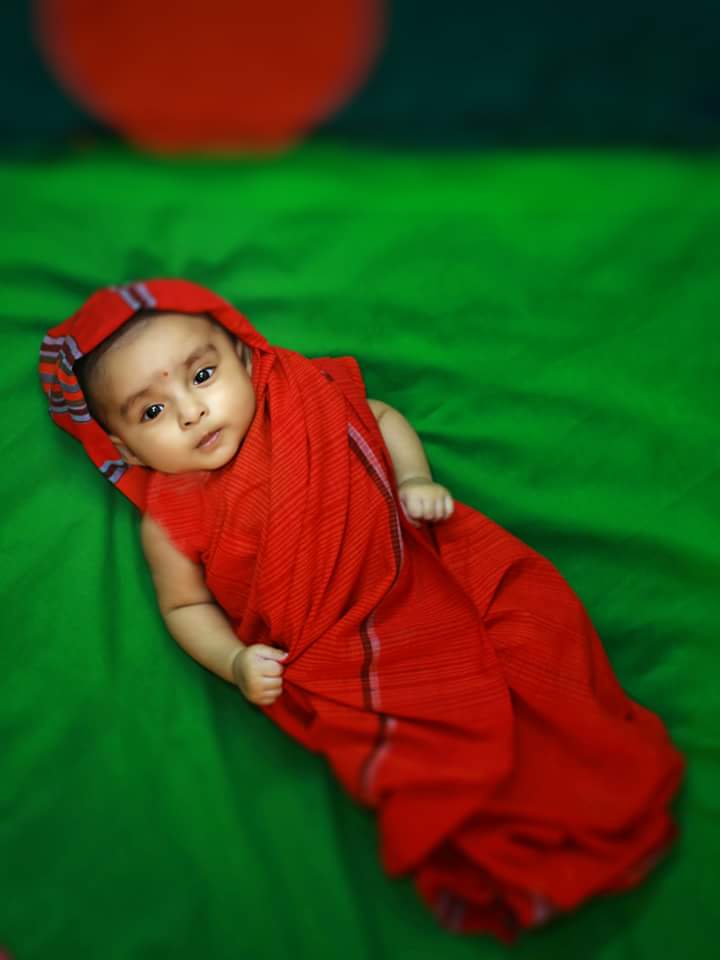26th March, The Independence day of Bangladesh.
Humans are born freely. When his birthright was plundered by another, he started protesting. In order to establish their independence in exchange for everything. After 200 years of British colonial rule, the Bengali nation has to be the brutal victim of barbarous exploitation of Pakistani exploitors for 24 years long. Bounded by the subordination of subordination, the Bengali people started the war of liberation in the dream of establishing independence on March 26, 1971. Nine-month bloody war; Freedom is attained in exchange for the sacrifice of twenty-three thousand souls and two lakhs of mothers and sisters. Born on the map of the world, Bangladesh is a free and sovereign country. This glorious day commencing on the journey of independence on 26th March is recognized as the 'Great Independence Day' in Bangladesh's history.
Historical Background:
When the historic background of Bangladesh's War of Liberation was reviewed, it was seen that in 1947, the dreams of the movement of the autonomy of Bengal were originally sown, during the departure of the British in India. Later, in each case, it accelerates the movement of continuous exploitation, oppression, discriminatory behavior, refusal to give fair rights, etc. This indirect struggle to establish self-determination rights came in 1971 and became inevitable. The 'Bangla' terrain was created through the inevitable big explosions.
After independence from British-Beniyad in 1947, India was divided into two distinct states - India and Pakistan. In spite of the joining of the geographical and cultural fields, Pakistan and Pakistan were formed only by the sake of religion, newly formed state Pakistan. The racism of the Pakistani rulers created on the basis of strange bi-nation theory and extreme discrimination in all areas is acknowledged by the Bengali people. The Pakistani rulers started oppression not only on economic exploitation but also on Bengali culture and heritage. In 1948, Pakistan's first Governor Mohammad Ali Jinnah declared Urdu as the only state language. Then, through the formation of 'All Party State Language Movement Council', the expansion of public discontent began in East Pakistan against the rulers of West Pakistan. In 1995, when the announcement of Urdu as a state language, Falling. On Feb 21, demanding the state language Bangla, the students of the block broke violation of Section 144 and named it on the streets. Rafiq, Jabbar, Salam, Barkat and many others were martyred when the fierce Pakistani ruling group fired on the procession. This holy blood of the martyrs gave a picture of the flag of the red-green flag in the heart of the Bengalis. The United Front won the provincial election of 1954. The power of the ruling power of the ruling party became shaky in the helplessness of the Muslim League. In 1956, again the revolt in the public language, the mismanagement of Ayub Khan, the oppression of Punjabi and Pashtun were imposed on the Bengalis due to the forced imposition of the Bengalis. In 1966, historical 'six-point' demands were raised to demand the independence of Bengalis. In order to prevent mass protest, the Pakistani ruling regime has to run on the independence of the people through military rule, Repression In 1968, Bangabandhu Sheikh Mujibur Rahman, the apex personality of the Bengali liberation war, was arrested in a false and organized 'Agartala conspiracy case'. But in the face of strong public agitation, Pakistan's extravagance left Bangabandhu and other political leaders in 1969. Even President Ayub Khan handed over power to Yahya Khan and was forced to resign. In the general elections of 1970, the Awami League won by a huge margin. After the meeting in power, the ruling coalition regime was in the process of transmitting power. Meanwhile, on 7 March 1971 Bangabandhu Sheikh Mujibur Rahman called a huge gathering at the Racecourse grounds of Dhaka. In the historic speech of the rally, he said, "The struggle for freedom is the struggle for independence, Calling for the struggle to liberate the struggle, and whatever they have, call them to join the war. Such a great call was awaited for the Bengali people so long ago. Immediately spread throughout the whole of Bengal, this post Everywhere begins the movement very fast.
Operation Searchlight:
On the dark night of March 25, the barbarous Pakistani Pashtun started ruthless massacre on the unarmed and sleeping Bengalis. According to Asia Times, "Indians are bastards anyway". In the meeting with the senior army officers, Yahya Khan declared: "Kill three million Bengalis, they will see our hands lick." As planned, the Pakistani Army launched Operation Searchlight on the night of March 25, which aimed to crush the Bengali resistance. As part of this, the Bengali members of the military were disarmed, the students and intellectuals were destroyed and ordinary people were killed arbitrarily throughout Bangladesh.
To achieve resistance and independence of the Bengalis:
On the night of 25 March, Bangabandhu was arrested and taken to West Pakistan. Before the arrest, on 26 March, he announced the independence of Bangladesh. In his absence, other organizers of the war of liberation formed a temporary Mujibnagar government and formed a strong movement against the Pak army. The united struggle of all the people, the all-round support of the friends, the positive role of the world media, in addition to the exchange of thirty lakh martyrs and the honor of two lakh mothers and sisters, Bangladesh finally became independent.
Purpose and significance:
The objective of the War of Liberation was to achieve self-control and establish a non-communal, welfare-oriented, humanitarian, progressive independent democratic state. By ensuring the fundamental rights and legitimate rights of the people, establishing a national identity, exploitation, discrimination, and eliminating injustice, the dream of establishing a happy and prosperous society free from hunger and poverty was one of the main objectives of independence. The significance of Independence Day in the country is immense. This day brings the lives of the Bengali people as well as the acrid-sweet feeling of joy and pain. On the one hand, the loss of losing is the joy of receiving But ultimately losing all the possessions, the joy of getting independence grew up to the joy of every Bengali. This day of glory comes every year about self-sacrifice and self-introduction messages. Reminds us of our duties and responsibilities. This day comes with inspiration and guidance to move forward with new enthusiasm.


very good creation. happy independent day.
Thank you. Happy Independent Day.